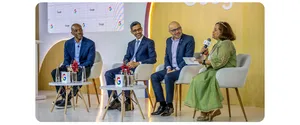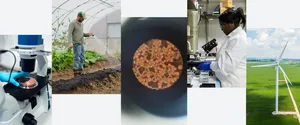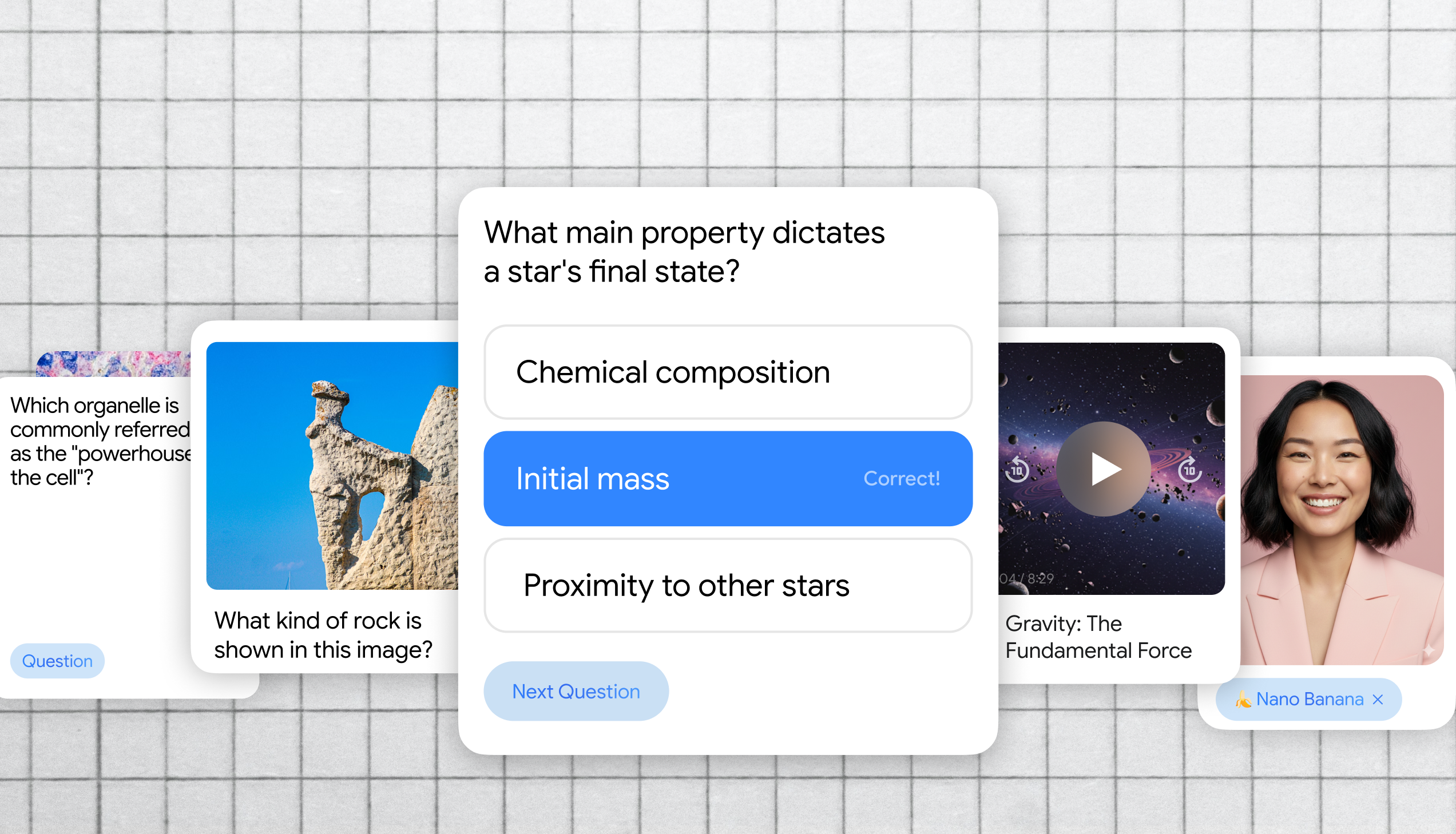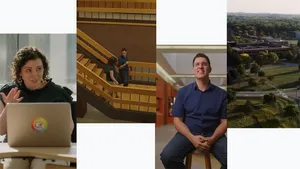Helping to close the education gap
Even after four years of primary education, 130 million students around the world haven’t mastered basic subjects like reading and math. Limited access to quality materials, under-resourced teachers, and barriers to learning outside the classroom present challenges for many children.
Through Google.org, we’ve given more than $110 million over the past five years to help close gaps in education—whether globally through early and ongoing support for innovators like Khan Academy or focused specifically on how we can support future technologists through our support for CS education organizations. Today, we’re expanding on those commitments with our largest dedicated portfolio of $50 million over the next two years to support nonprofits who are building tech-based learning solutions that tackle these challenges. To start, we’re funding nine organizations around the world that we will also support with Googler volunteers in areas like user experience design, translation, offline functionality and data analytics. By the end of 2017, our goal is to give grants to education nonprofits in 20 countries. And later this year, we’ll be looking for the next round of innovators to join them.

Our education grants will focus on three areas where technology can help: giving more students access to quality learning materials, supporting teacher development, and reaching students in conflict zones. Get to know some of our grantees below, and learn about the ways they’re using technology to help close the education gap.
Giving kids the right materials
Around the world, students in low-income communities have to learn with fewer books, out-of-date texts, and materials that are culturally irrelevant or even in the wrong language. Technology can bypass the geographic and financial boundaries that block educational resources from reaching students, while also making those resources more engaging, interactive and effective.

One of our first grantees in this area is the Foundation for Learning Equality, which builds free open-source software to bring online materials—including books, video tutorials and quizzes—to the 4.3 billion people who lack consistent access to the internet. Their new platform, Kolibri, runs on numerous devices and helps educators access, organize and customize digital content, even in the most remote locations. So far they’ve brought 7,000 videos and 26,000 interactive exercises offline for students in about 160 countries.
Our funding, along with Google volunteers providing technical support, will help Learning Equality build a bigger content library and scale their reach to hundreds of thousands of new students. This summer, Google engineers and product experts are volunteering to spend four weeks working side-by-side with Learning Equality’s product team in areas such as UX/UI, content integration, and video compression technology.
Keeping teachers trained and engaged
Having a great teacher is one of the best predictors of a student’s academic success, but in many countries there simply aren’t enough of them. By 2030, India alone will need 3 million new primary school teachers just to keep up with its growing population of students.
Google.org is helping local leaders invest in digital tools that offer teachers quality training and confidence-building tools that encourage creativity in the classroom. The first of these grants goes to Million Sparks Foundation's ChalkLit, an app-based platform that combines bite-sized, curriculum-aligned content with an online community to support first-rate teaching. Google engineers volunteering their time and skills will advise the Million Sparks team on how to optimize the ChalkLit app for teachers in low-bandwidth and offline environments.
Helping students learn in crisis
Thirty-two million primary school-aged students can’t reach traditional classrooms because of violent conflict and displacement. Quality primary education is especially important to kids who, living in camps or other hard-to-reach settings, are highly vulnerable to poverty and exploitative labor.
One interesting approach to this problem comes from Google.org grantee War Child Holland, whose game-based method, Can’t Wait To Learn, children affected by conflict from falling behind by providing a year of lessons and exercises that align with a host country’s curriculum.
Data collected from Can’t Wait To Learn’s first deployments in Sudan showed that students learned significantly from the approach, with boys and girls progressing at equal rates. Supported by Google product experts who are volunteering to help build their product road map and expand their tech team, War Child Holland aims to reach significant numbers of children in the Middle East and Africa the next five years.
We’re continuing to work with these grantees, and are aiming to expand our efforts throughout the next year. If you’d like updates on our program, please let us know. We look forward to continuing this work to make education more equitable for children around the world.







